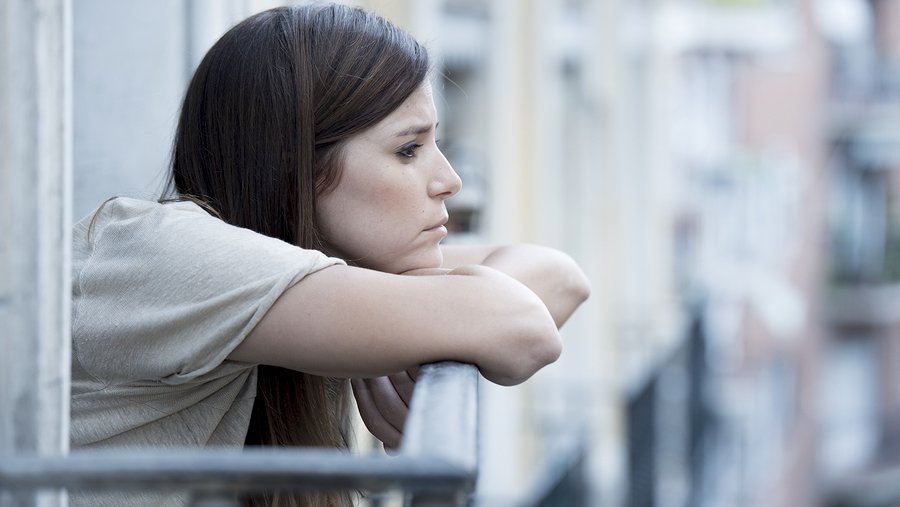The British might be onto something. Earlier this year, we wrote about how they created a Minister of Loneliness, with the objective of helping their elderly citizens feel more connected and less socially isolated. In the United States, no such post exists. But if it did, new research suggests that it might need a far different focus than senior citizens. In America, it appears that nowadays the most pervasive loneliness is being experienced by young adults.
The study was published by Cigna, a health insurance company, in conjunction with a market research company called Ipsos to survey adults in the U.S. about their feelings of loneliness.1 “2018 Cigna U.S. Loneliness Index.” Multivu. 1 May 2018. Accessed 6 May 2018. http://www.multivu.com/players/English/8294451-cigna-us-loneliness-survey/docs/IndexReport_1524069371598-173525450.pdf. The data was collected through interviews of men and women 18 years and older residing across the country. Each subject was asked questions based on the UCLA Loneliness Scale, a standard tool for evaluating social isolation and loneliness.
A whopping 46 percent of all the participants said that they sometimes or always feel lonely. Practically the same amount, 47 percent, admitted that they sometimes or always feel left out. And approximately half of the volunteers report that they do not have meaningful, face-to-face social interactions every day.
In an unexpected turn of events, the participants’ responses indicated that young adults feel the greatest sense of loneliness—far more than older people. Generation Z, who range in age from 18 to 22, had the highest loneliness score of any generation, at 48.3. Millennials, who range in age from 23 to 37, fared somewhat better with a score of 45.3. The next group, Generation X, who fall between the ages of 38 and 51, were almost exactly the same, coming in with a score of 45.1. And Boomers, age 52-71, came in even lower at 42.4.
But the only population that reported significantly lower levels of loneliness was that known as the Greatest Generation, who are 72 and older, with a loneliness score of 38.6. Not only is that far below each of the other age groups assessed other than the Boomers, but it is well below the national average score of 44. This is surprising because several earlier research findings have indicated that it is senior citizens who often live alone, don’t have regular social interactions with others, and feel lonely and isolated.
This makes you wonder why younger people, who are typically still in school or working and are surrounded by friends and family would report feeling the most lonely. It’s an easy leap to think that social media might be to blame for these young people who have grown up constantly reminded of how wonderful everyone else’s lives are in their daily status updates. While that may play some role, as a 2014 study at the University of Houston in Texas showed that use of social media is associated with depression,2Steers, Mai-Ly N.; et al. “Seeing Everyone Else’s Highlight Reels: How Facebook Usage is Linked to Depressive Symptoms.” Journal of Social and Clinical Psychology. October 2014. Accessed 7 May 2018. http://guilfordjournals.com/doi/10.1521/jscp.2014.33.8.701. it doesn’t hold up in the Cigna study. In the current research, more time spent on social media was not linked to greater loneliness.
Instead, it appears to be the in-person interactions that make the most difference in whether someone feels lonely much of the time. To that end, the subjects who live with others tended to be less lonely than those who live by themselves. The only exception was for single parents, who typically had higher loneliness scores than their peers who live alone. So, although “time” spent on social media may not be linked to greater loneliness, the younger generations’ reliance on social media to substitute for personal interaction and the substitution of emojis for real feelings just may be.
With that in mind, what can we do to enrich our personal lives and help not only ourselves but those we care about to feel less lonely? Start by making more of an effort to have meaningful conversations in person, rather than by text or telephone. Share not only what happened to you that day, but how it made you feel, and really listen to what others are saying to you during your conversations. This is how you can strengthen your connections to others. And it’s easy to find opportunities to make it happen. Ask a coworker to join you in the break room for lunch rather than sitting alone at your desk playing games on your phone. Recruit a neighbor to go walking and talking in the evening. Reach out to old friends and make some plans to get together on the weekend. It only takes a little effort on your part, and the benefits of building a caring and supportive network will be well worth it.
References
| ↑1 | “2018 Cigna U.S. Loneliness Index.” Multivu. 1 May 2018. Accessed 6 May 2018. http://www.multivu.com/players/English/8294451-cigna-us-loneliness-survey/docs/IndexReport_1524069371598-173525450.pdf. |
|---|---|
| ↑2 | Steers, Mai-Ly N.; et al. “Seeing Everyone Else’s Highlight Reels: How Facebook Usage is Linked to Depressive Symptoms.” Journal of Social and Clinical Psychology. October 2014. Accessed 7 May 2018. http://guilfordjournals.com/doi/10.1521/jscp.2014.33.8.701. |












I worked for about 45 years
I worked for about 45 years and was a single parent of one son. Because of a turn of events including retiring (a really long story) I ended up moving to a medium sized town after a couple of years with my home contents in storage after selling my apartment of 23 years,, caring for my mother who was dying, then directly to this town, to care for my son who had a heart attack at a really young age during the time I was caring for my mom. I should have left his place sooner, but couldn’t find a place suitable for me being a senior who has to look after myself, so ended up at his place for a year (he was single at the time which is why I helped him after quad bypass surgery) Anyway after living a really busy life, with family and neighbors and co-workers, I ended up totally alone. There was a family upset, like we hear about with estate stuff, when my Mom died, while I was still living in her house before I went to my son’s place. I was really stressed, and wasn’t great company for anyone so I lost connection with buddies at work and in the apartment I lived in for 23 years because I couldn’t be myself and figured I would get in touch with them later on. It turned out to be so long that I just kept away.
Just entering a ‘short version’ of the troubles I had; along with lost contact with apartment buddies and work friends and most of my siblings (due to my sister, who was the Executor of Moms place, turning sisters against me) There is always a story behind ending up pretty much alone, after such a full social/family life before. Personality also really plays a huge part in loneliness. I am basically a loner, like to have s small handful of close friends as opposed to socializing with a group of people all the time. .I am not a ‘joiner’ of whatever where I would have to be on certain nights. I have never done that. Having said that, I do meet people easily, and have met a few here just by striking up a conversation while shopping or whatever.
BUT THE HUGE THING NO ONE EVER MENTIONS, IS THAT A FRIENDSHIP MADE AS A SENIOR, IS USUALLY SUPERFICIAL AND MOST HAVE THEIR OWN GROUP AND FAMILY AND GRANDKIDS.. There is no history together or a closeness we have as we would with someone we grew older with. I ended up moving into a complex of mostly seniors, of manufactured homes and it is really a lot to look after. I am 72 and have been here 3.5 years and pretty much ended up spending time just keeping up this large place and yard. I took this because it was partially renovated but really had to change a lot in here. Big problem is contractors are really busy and can’t find anyone to help. We had to get out of the house my son was renting as owner was moving back in . So here I am, sitting here with everything I need, nice place, A/C, new vehicle, fairly good health, and no real connection to anyone, My son is here in this town, but he has a lot to take care of so see him less than I would like to. One brother lived here but he, too, just passed away a few weeks ago. I am writing this ‘book’ because being alone happens for so many reasons. I never would have expected I would end up like this. The one sister I was with all the time is the one who started the mess with my family. So my daily yap sessions are gone, which was with that sister and mom but my mom died too.
One thing, even with younger people, is the fact that all the do-gooders with self help articles in this world of the “me” generation, emphasizes ditching anyone who is not positive all the time or makes you feel ‘warm and fuzzy’ all the time.. The comment in last paragraph of this article is to talk about what happened today and how you felt, just does not work in this day and age. When I was going through this really bad time, there was no one I could talk to about it even for a few minutest. I wasn’t constantly harping on troubles but found even a few minutes of a phone call mentioning anything, they would say they have to go; this, after they actually how things are going. I made the mistake of thinking they actually gave a dam and told them truthfully.. But most want you to just say ‘fine’ so they can talk about themselves.. Some people actually tell you what you aren’t allowed to talk about, while they go on about things I’m not interested in, good or bad. So it is really difficult when you get in a situation like this. For me, everything was gone at the same time; my mom died, job (retirement) family, friends & location and now a brother passed away., I keep trying to do whatever to change situation but keep ending up against a brick wall.
It sure isn’t easy. The suggestions I do hear are things I did all my life, BUT IS NOT THE SAME IN YOUR 70’S. I like playing pool in a pub and dancing to pop/new music. Worth mentioning is that I was hanging around with younger coworkers, like 40’s or so, and came directly into this place of grey hair and walkers. I think that is weighing heavily on me too. From forties to finished, There was no transitional period. I ‘m not sure what you will do with this info. I figured you wanted input from those who are experiencing different types of loneliness. For me, a ‘catch22 situation: Need to go out and play to feel better, but also need to feel better, to make myself go out and play! What I think is needed? For one, a mixture of help for seniors, like reliable contractors to use if you need repairs/help with things. There is always a reluctance to trust workers and with good reason. There has to be something better than a buss load of grannies for those who aren’t quite ready for that yet.